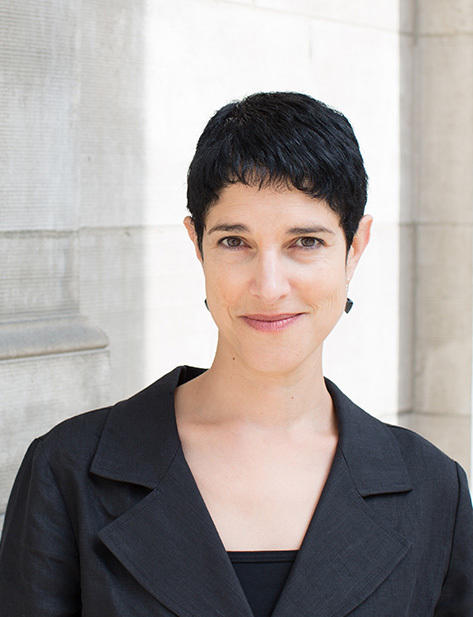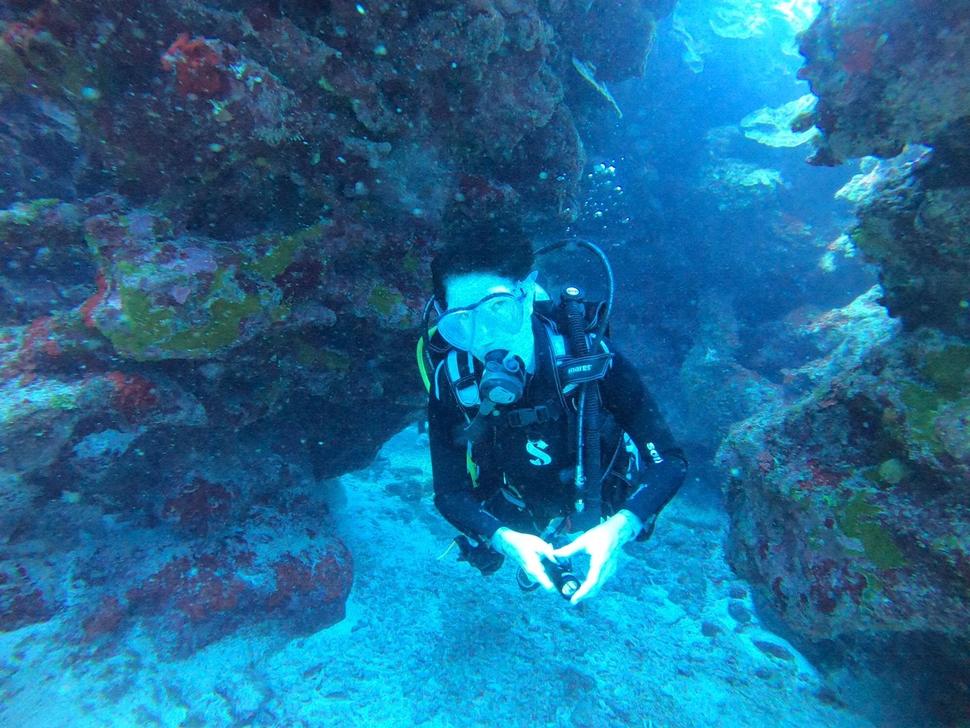Dr. Ophira Ginsburg Joins NCI’s Center for Global Health as the New Senior Advisor for Clinical Research
, by Nina Ghanem, M.Ed.
On February 28, we welcomed Dr. Ophira Ginsburg as CGH’s new Senior Scientific Officer, Senior Advisor for Clinical Research. Dr. Ginsburg is a medical oncologist and global women’s health researcher with nearly 20 years of experience in global cancer prevention and control. Formerly based at the University of Toronto, Canada, she was a Medical Officer at the World Health Organization (WHO) Headquarters in Geneva, Switzerland (2015-2016) and has served as an ad hoc consultant to several UN agencies. From 2017-2021 she was the Director of the High-Risk Cancer Genetics Program at the Perlmutter Cancer Center, an NCI Designated Comprehensive Cancer Center, and an Associate Professor in the Departments of Population Health and Medicine at NYU Grossman School of Medicine. In June 2021 Dr. Ginsburg was appointed as a Senior Visiting Scientist at the International Agency for Research on Cancer (IARC), the WHO’s specialized cancer agency. Her research is focused on improving equitable access to breast and cervical cancer prevention and control. She has authored >100 publications including commentaries in The Lancet, The Lancet Oncology, Journal of Clinical Oncology, Nature Cancer, and Nature Reviews Clinical Oncology. She currently co-chairs The Lancet Commission on Women and Cancer which will be published on International Women’s Day 2023.
On this International Women’s Day, we hear from Ophira about her start in global health, opportunities for NCI, and her passion for diving and ocean conservation.
- How did you begin your career in global health?
In 2004, I was invited to meet with colleagues at the National Cancer Hospital of Vietnam. I used the opportunity to listen and learn, and this began a fruitful research collaboration that has also been very rewarding personally. I continue to serve as a (volunteer) advisor to the National Institute for Cancer Control in Hanoi and am involved in a current study, funded by NCI to test a “peer to peer” intervention to support the psychosocial needs of women newly diagnosed with breast or gynecological cancers in several major centers in Vietnam.
- Was there a defining moment that led you to this path?
My path to global health grew from my passion for social justice and my belief in the fundamental right to health. During my postgraduate medical training, I was active in medical humanitarian and human rights organizations but wanted to use my emerging skills more directly. So, in 2002, I took leave and traveled solo in Southeast Asia for a few months, going to clinics and hospitals to listen to laypeople, patients, and their families about their experiences and beliefs about cancer. I was struck by the stigma, myths, and taboos around cancer in many communities, and the general lack of essential services, especially outside of urban centers. It was in rural Cambodia where I met a physician with Doctors Without Borders/Médecins Sans Frontières, (also known as MSF). This remarkable man was from Sierra Leone and had been working in Cambodia for over a year in a clinic for people living with HIV/AIDS. This marked a turning point for me. His own country was war-torn yet here he was, in another post-conflict setting, far from his home, dedicating himself to service. The clinic’s name translated, more or less, to “Chronic Diseases” and did not include “HIV” or “AIDS”. He said that this was purposeful, due to the profound stigma around HIV/AIDS. I asked what was most needed, and I told him of my plans to become an oncologist. He shook his head and asked, half-joking, if I could take over for him because he was so very tired. As I began my long trip home to Toronto, I seriously considered leaving behind my oncology career, pursuing instead an infectious diseases fellowship, and joining MSF. To make a long story short, once home, my love for clinical care and cancer research won out. I knew I was not alone and decided to seek out others who were working to support cancer care and control in low- and middle-income countries (LMICs).
- Describe your approach to global health.
I would say that I endeavor to approach global health through the inter-related frames of social justice, equity, and human rights. And I believe that the pursuit of true global health equity requires self-reflection, and humility, and must be practiced with intentionality, in this spirit. I believe that we are now witnessing a critical moment, when many of our colleagues in LMICs leading high-impact initiatives in cancer research and training are, at long last, being recognized as true leaders in global oncology. It is also heartening to see an emerging generation of highly skilled women and men in many LMICs who are well-positioned to advance cancer research and training programs that are purpose-built to answer the most pressing questions of direct relevance to their own populations while contributing to the global cancer research evidence-base.
- What are key lessons you’ve learned in your research career?
Well, I would describe myself as a ‘Jill of all trades”, having begun my research career in clinical cancer genetics, then genetic epidemiology, clinical trials (including chemoprevention and treatment), and more recently in implementation research. With this experience plus working briefly at WHO and IARC, I try to view things from different perspectives, from the ground up and from “60, 000 feet.” A pivotal moment came while working in rural Bangladesh, where I regularly saw women come to our clinic with debilitating manifestations of under-or untreated advanced breast cancer, the likes of which I might see just a few times in an entire career at home. I wondered about the factors that led this woman to be in this situation at this time. This marked the beginning of an important education for me, first, simply by taking the time to really listen to the women experiencing breast cancer, to their families, and to the frontline health workers. Many patients told us that they had “no choice” to seek care earlier in the course of the disease, not only because of abject poverty, but because many lacked agency to make decisions for their own health care, were (justifiably) afraid of being abandoned by their husbands and ostracized by their communities, and many believed that a diagnosis of cancer was effectively a death sentence. I learned a few very important lessons here, notably that:
- that these women, like so many, in countries in all world regions, were making very rational and thoughtful decisions based on what they knew, decisions that they felt would best support the well-being of their families, even if that meant sacrificing their own health.
- whether in midtown Manhattan or rural Bangladesh, if we only focus on the biomedical aspects of a patient’s cancer, we miss a critical opportunity to truly understand the person we are trying to help, and thus an opportunity to serve their holistic needs.
- we must always consider the context, and try to appreciate the social determinants and the social injustices that can drive inequitable cancer risk and outcomes in all settings.
- What challenges and opportunities do you hope to address in your new role at NCI?
I feel it's most important to first listen and learn from colleagues at CGH, from the NCI more broadly and from global health experts in the US and globally, to help identify key gaps and unmet needs where CGH can best assist. In terms of challenges, in the face of so much exciting recent progress in cancer research, it can seem overwhelming to focus on a shortlist of priorities. But to name a few, I’m very keen to develop opportunities to support clinical research in a way that also strengthens fragmented or fragile health systems and implementation research including pragmatic clinical trials that can serve several purposes at once. For example, introducing new technologies for cancer early detection can be coupled with a patient navigation strategy to ensure that all patients identified at risk of invasive cancer are supported through their journey to diagnosis, and if needed through all phases of their treatment and survivorship care. I hope that in my new role I will be able to support the mission of the NCI CGH to advance global cancer research that addresses key scientific issues in global cancer control, which leverages opportunities afforded by collaboration with global partners and does so with a spirit of solidarity and equity. I have been very fortunate to work with colleagues at the NCI Center for Global Health since about 2015, including as the WHO representative of the International Cancer Control Partnership (ICCP), making this very much like a homecoming of sorts!
- What do you like to do when you aren't working?
I love to walk, but the pandemic also turned me into a cyclist, somewhat later in life! I also love to sing, and I’ve been taking opera lessons for several years. As some of my colleagues know well, I am an avid SCUBA diver that is tied to my passion for ocean conservation and planetary health, and just became certified as a PADI Rescue Diver.

